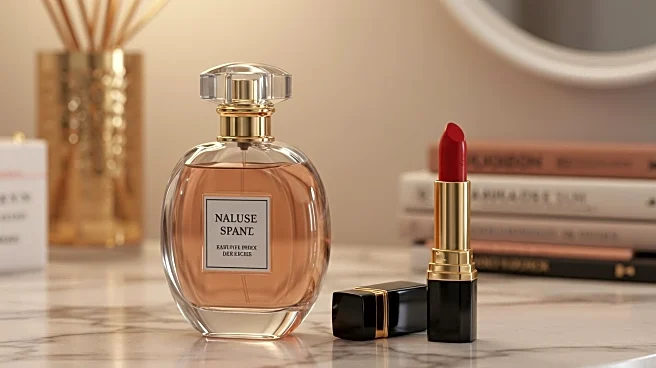What is the story about?
What's Happening?
Fashion brands are increasingly venturing into the beauty industry as economic pressures mount globally. With tariffs affecting profits, brands like Louis Vuitton, Balmain, Prada, and Zara are launching beauty products to capitalize on higher margins. Louis Vuitton plans to introduce La Beauté Louis Vuitton, featuring lipsticks, lip balms, and eye palettes. This trend is not limited to high-end brands; mid-tier retailers like H&M and Zara are also expanding their beauty offerings. The move is driven by the attractive margins in beauty and the ability to offer consumers affordable luxury items, such as a lipstick instead of a high-priced handbag.
Why It's Important?
The shift towards beauty products allows fashion brands to diversify their revenue streams and appeal to a broader consumer base. Beauty products offer higher profit margins compared to apparel, making them a strategic choice during economic downturns. This trend reflects a broader industry movement where brands merge categories to enhance their market presence. For consumers, it provides access to luxury brands at a more affordable price point, potentially increasing brand loyalty and consumer engagement. The expansion into beauty also highlights the importance of innovation and credibility in product offerings to maintain consumer trust.
What's Next?
As fashion brands continue to explore the beauty sector, they may face challenges in maintaining brand identity and credibility. Successful integration requires unique and high-quality products that resonate with both existing and new consumers. Brands must focus on developing core hero products and building them over time. The beauty industry is competitive, and brands must differentiate themselves to succeed. Additionally, the focus on fragrance and makeup may lead to a decline in skincare offerings, requiring brands to strategically balance their product portfolios.
















